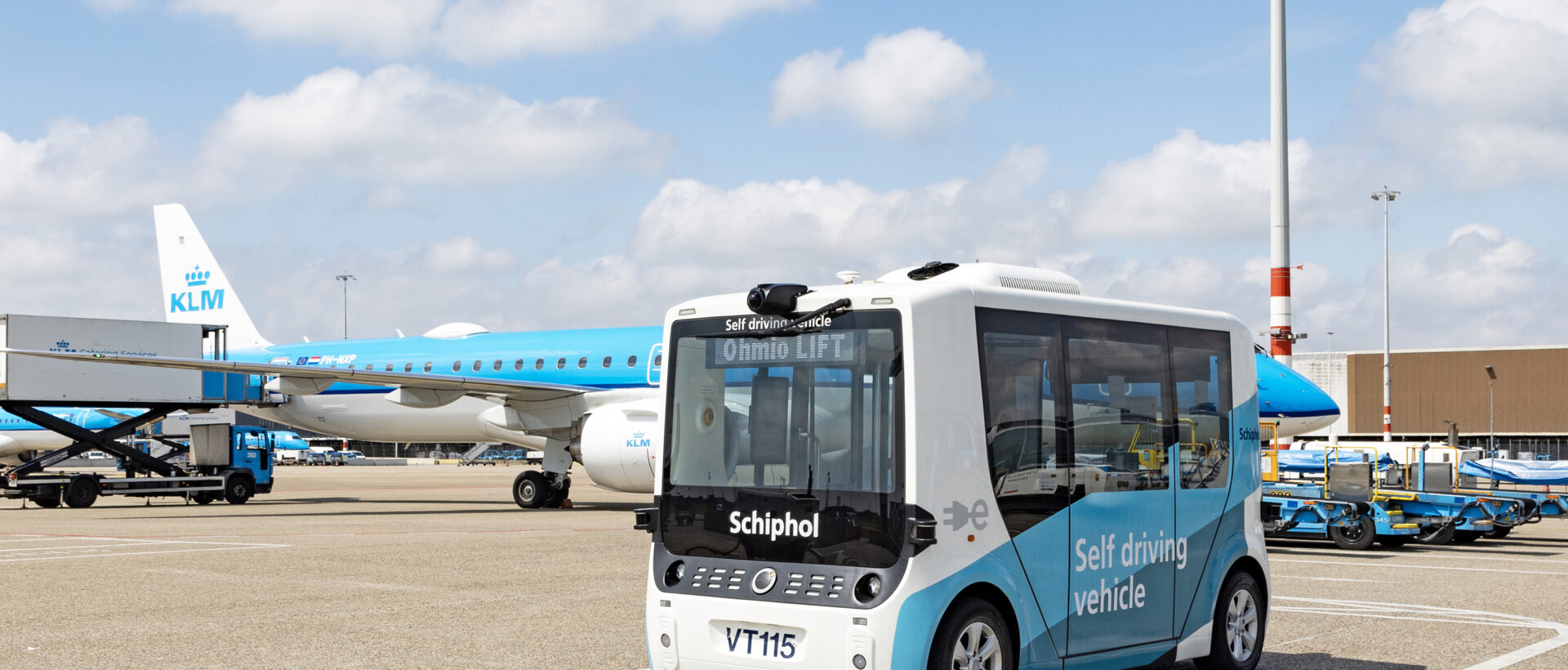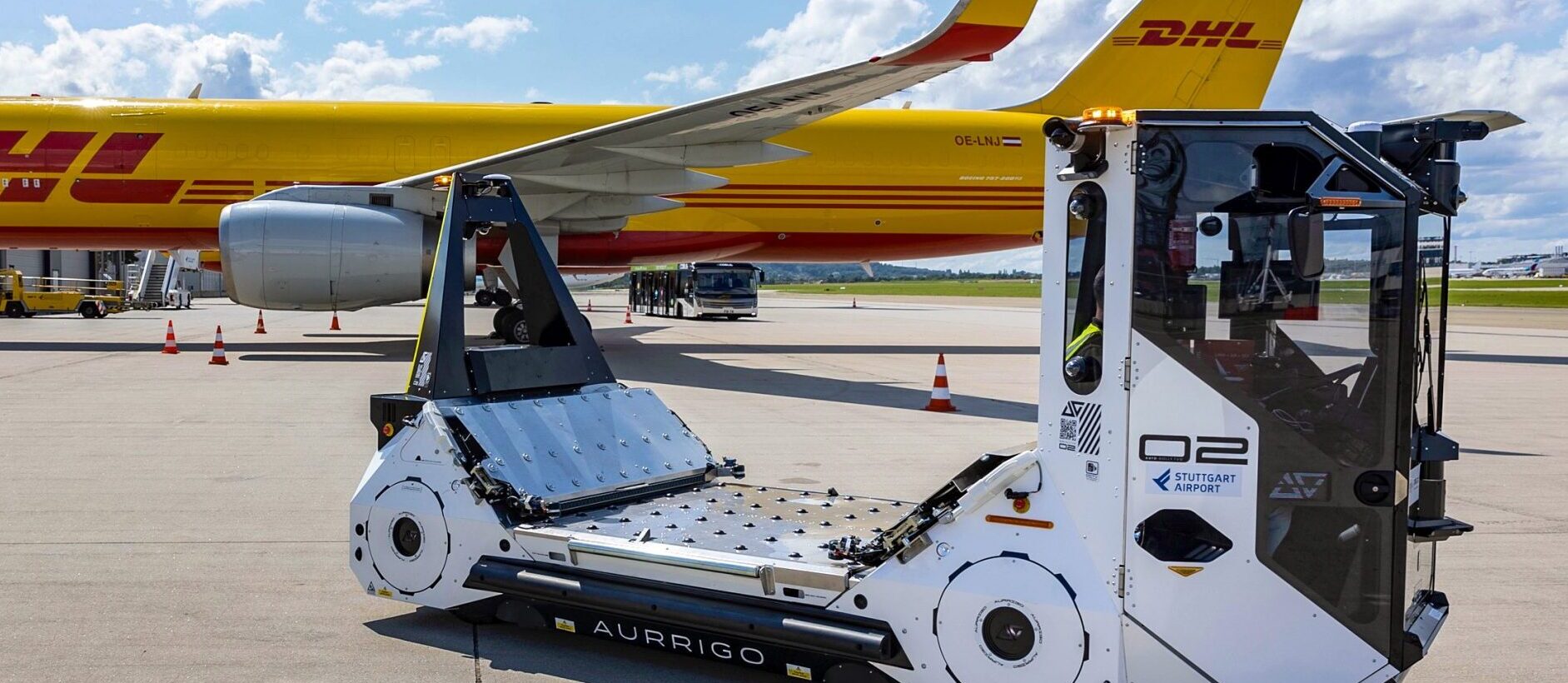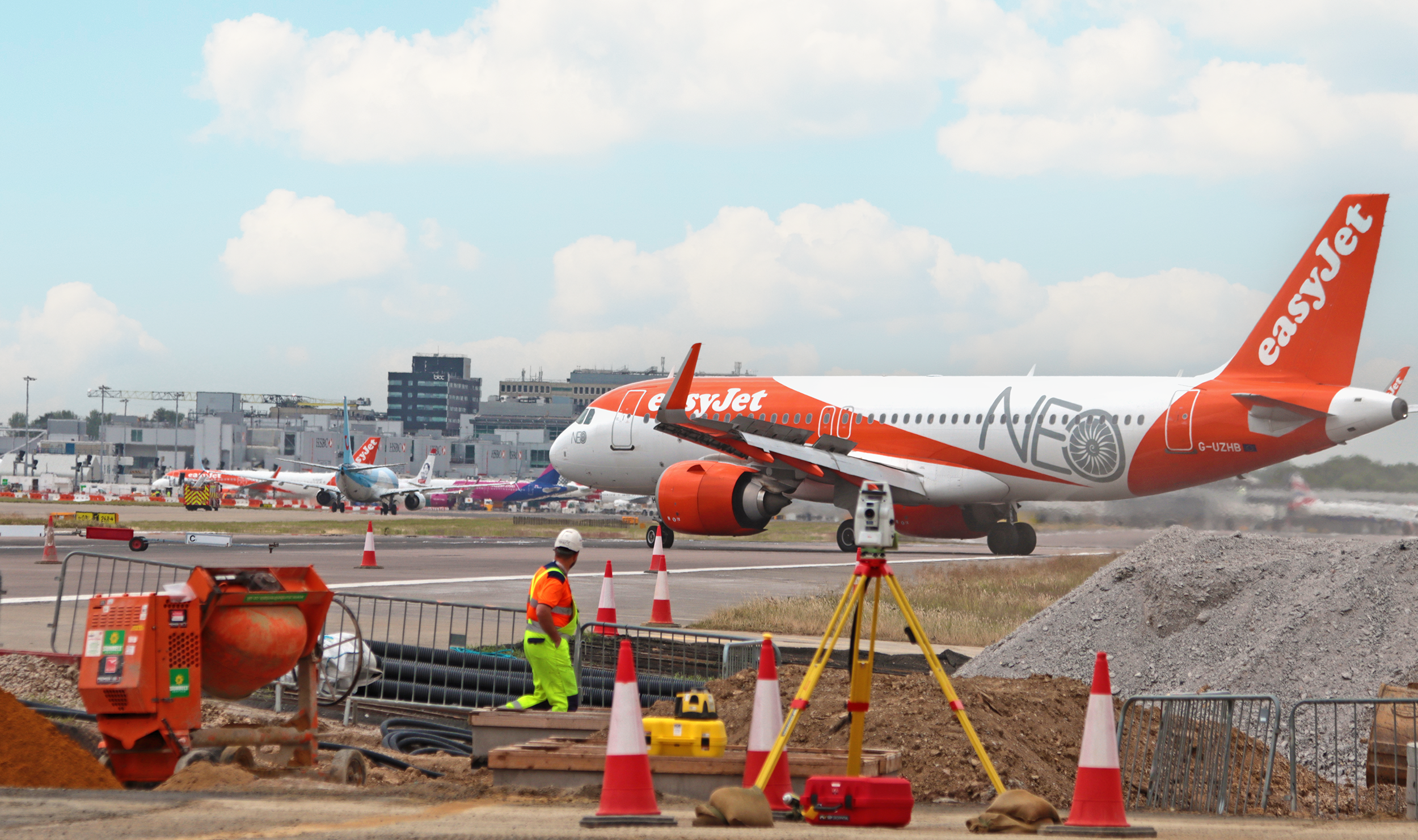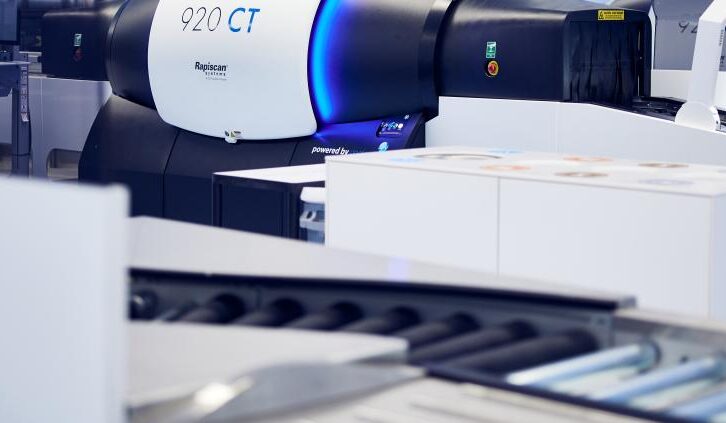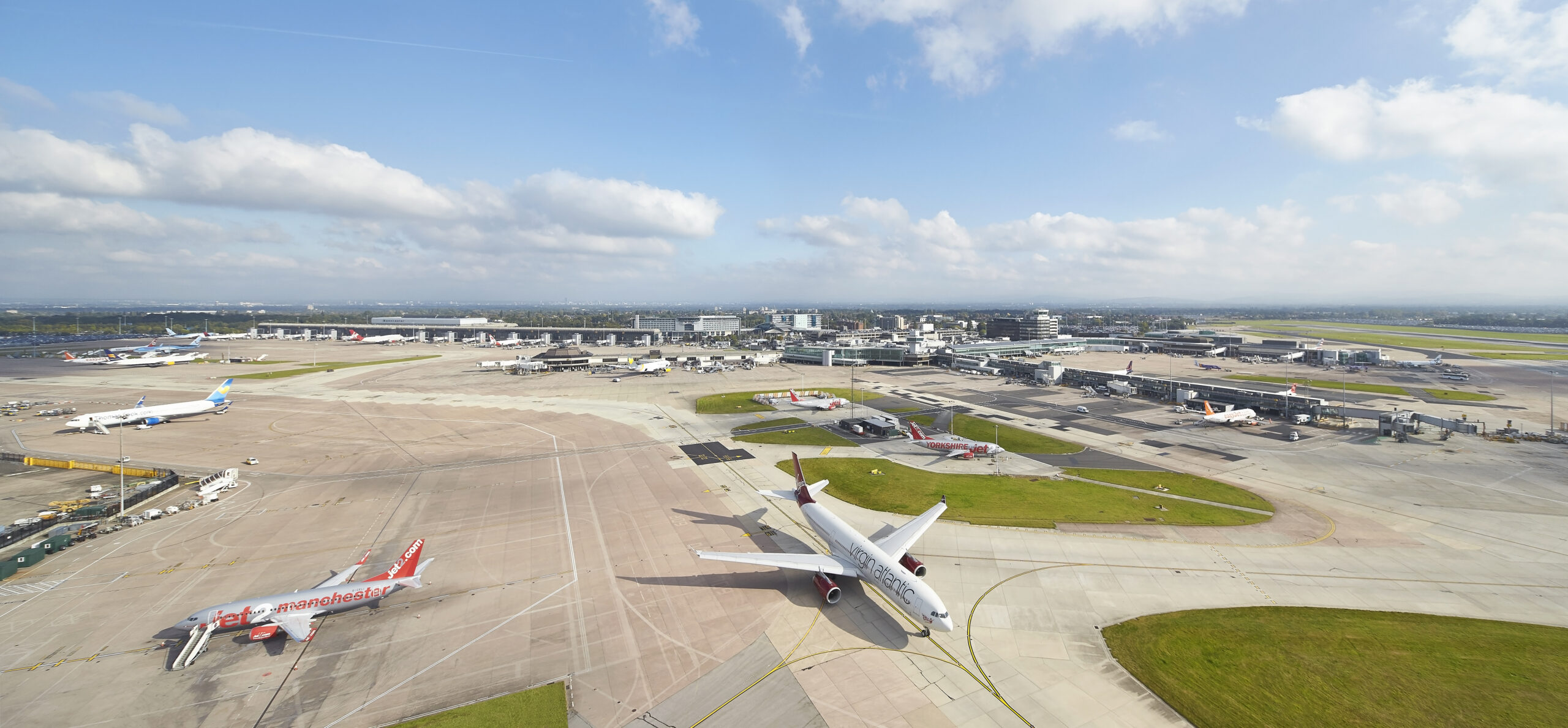easyJet’s Project Acorn, the UK’s first airside hydrogen refuelling trial to be conducted at a major airport, has concluded at Bristol Airport (BRS).
This initiative presents the feasibility and safety of using hydrogen as an alternative fuel within airport operations, particularly for ground support equipment (GSE).
Throughout the trial, hydrogen was used to refuel and power active easyJet baggage tractors operated by DHL, demonstrating the reliability of the fuel in a live airport environment.
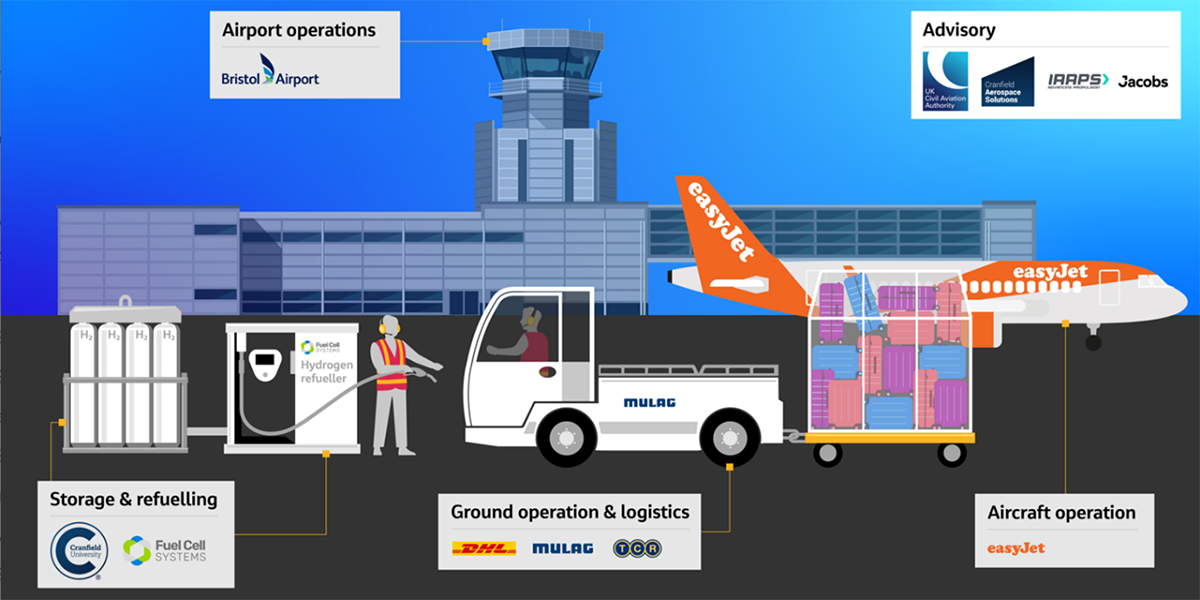
Project Acorn involves key players from aviation, engineering, logistics and academia, including Cranfield Aerospace Solutions, Cranfield University, DHL Supply Chain, and Fuel Cell Systems. These stakeholders will now leverage the insights gained from the trial to shape industry best practices, provide guidance on necessary infrastructure modifications, and contribute to establishing a regulatory framework governing hydrogen usage in aviation.
The UK Civil Aviation Authority (CAA) also played a pivotal role in the trial, serving as an independent reviewer of the safety case. This involvement indicates the project’s commitment to ensuring that innovation aligns with rigorous safety standards.
David Morgan, Chief Operating Officer at easyJet said:It’s without doubt that hydrogen will be an important fuel of the future for short-haul aviation, as demonstrated by the rate of innovation we’re seeing. While the technology is advancing at an exciting pace, as hydrogen isn’t used in commercial aviation today, there is currently no regulatory guidance in place on how it can and should be used, and so trials like this are very important in building the safety case and providing critical data and insight to inform the development of the industry’s first regulatory framework. This will ensure regulation not only keeps pace with innovation, but importantly also supports the industry in meeting its decarbonisation targets by 2050.
Specifically, the trial involved three key components:
- Safety & Evaluation – Landside operational trials and training were conducted in a safe and controlled environment at Cranfield University in the weeks prior to the test at Bristol Airport
- Hydrogen Storage and Distribution – Tanks containing hydrogen and a hyQube hydrogen refueller were provided by Fuel Cell Systems Ltd
- End Use – A GH2 baggage tractor fitted with a Globe FC proton-exchange membrane fuel cell was refuelled by trained DHL personnel via the mobile refueller at Bristol Airport
Tim Johnson, Director for Strategy, Policy, and Communications at the Civil Aviation Authority said:Projects such as this are cornerstones of our commitment to support innovation and decarbonisation in the industry. This trial will serve as the basis of a White Paper which we will also be contributing to, as well as allow for the creation of further safety guidance and regulatory standards for the use of hydrogen in aviation. We look forward to helping nurture this seed of the future greener aviation sector as it continues to grow.
Project Acorn aims to represent the beginning of a transformative journey towards hydrogen-powered aviation in the UK. The completion of the trial is a crucial step in developing the necessary infrastructure, safety standards, and operational procedures to transition the sector towards hydrogen readiness.
In addition to its immediate impact on ground operations, Project Acorn hopes to accelerate hydrogen adoption across the aviation industry, ultimately contributing to the broader decarbonisation agenda.
Anthony Browne, UK Aviation Minister said:Project Acorn is a great example of the UK aviation sector pushing the boundaries of what’s possible - using leading engineering to make decarbonisation a reality from the ground operation to the planes themselves. Innovative projects like this are crucial to achieving our target, set out in the Jet Zero Strategy of zero-emission airport operations by 2040.


